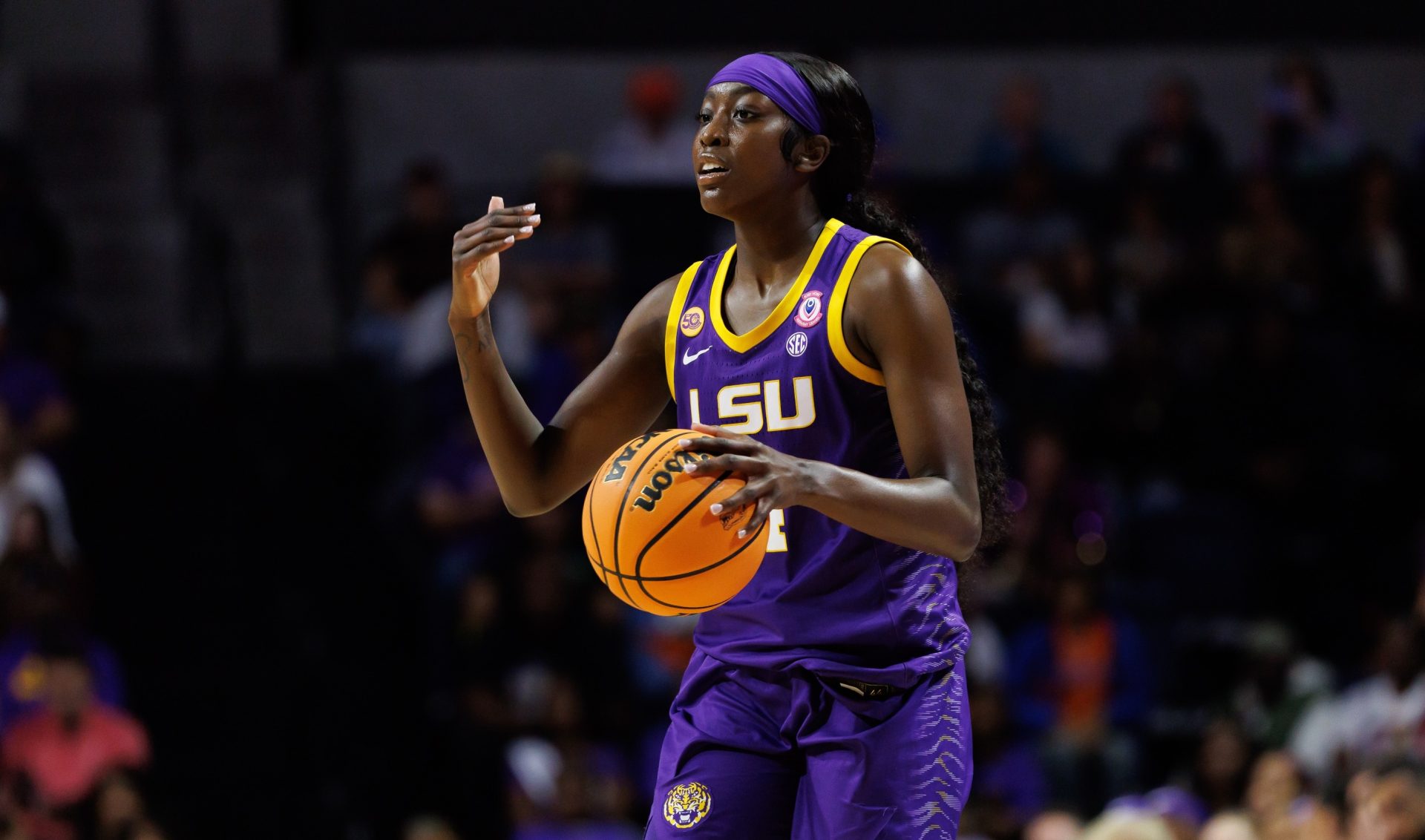Flau’jae Johnson is staying in college, delaying her WNBA career for another year.
The Athletic broke the news on Thursday evening; the deadline for her to declare for the draft was earlier this week. ESPN reported Thursday that she is weighing whether to stay at LSU or enter the transfer portal before it closes April 23.
The LSU star led her team to the Elite Eight of the NCAA tournament before falling Sunday to UCLA. The All-SEC player averaged more than 18 points, five rebounds, and two assists per game this season. She scored 28 points against UCLA.
According to WNBA rules, Johnson had 48 hours from her team’s Elite Eight loss Sunday afternoon to email the league renouncing her remaining NCAA eligibility. All NCAA players must be seniors or turning 22 in 2025 to be eligible for the draft. Johnson is a 21-year-old junior, but she turns 22 in November, giving her the option to declare a year early. (International players turning 20 in 2025 are eligible.)
The decision to stay in college or head to the WNBA has more financial considerations now than it ever has before. Players in college and the pros alike can earn money from name, image, and likeness and endorsement deals. But the House v. NCAA settlement has its final approval hearing April 7, which could open up all Division I schools to pay its athletes up to $20.5 million collectively each year as soon as next season.
On the pro side, the WNBPA is negotiating a new CBA with the league, with the current deal expiring after the 2025 season. Thanks to a new $2.2 billion media rights deal, rookie salaries in 2026 are expected to start much higher than they will this year, leaving even more financial incentive to wait the extra year. (It’s not clear whether the WNBPA will ask the league to backpay the players who will still be locked into multi-year rookie deals when the new CBA kicks in, such as Caitlin Clark.)
With all of these considerations in mind, top women’s college basketball players have gone both ways. UConn’s Paige Bueckers, equipped with big NIL deals with companies like Nike and Gatorade, declared for the draft despite another year of college eligibility. Her teammate Azzi Fudd is staying in Storrs, a move that cashes in on a potential House settlement and WNBA salary increases, all while improving her draft stock. Notre Dame’s Olivia Miles, a projected top pick in this year’s draft, pulled a surprise move Monday when she announced she’s entering the transfer portal rather than going in the draft or staying in South Bend.
When compared to those three players, Johnson’s earnings and celebrity is most similar to Bueckers. Johnson has 2 million followers on Instagram, just behind Bueckers’s 2.2 million, and they’re the only two college players who have already signed with the new women’s pro basketball 3-on-3 league Unrivaled. They each received an equity stake in the league with the NIL deal.
Johnson is also a rapper with a budding music career, having collaborated with artists like Lil Wayne and NLE Choppa. Over the years, she’s starred in commercials for Apple Cash, Amazon, Experian, Powerade, and more. Johnson is one of the most commercially successful college athletes—in any men’s or women’s sport—which, like Bueckers, gives her more financial flexibility when choosing to stay or declare than other top women’s basketball players.
Johnson and the Tigers won a national championship in 2023 over Iowa in what was then the most-watched women’s college basketball game of all time. Last year, the team was knocked out by Iowa in the Elite Eight.
This developing news story has been updated.





![[Subscription Customers Only] Jun 15, 2025; Seattle, Washington, USA; Botafogo owner John Textor inside the stadium before the match during a group stage match of the 2025 FIFA Club World Cup at Lumen Field.](https://frontofficesports.com/wp-content/uploads/2026/02/USATSI_26465842_168416386_lowres-scaled.jpg?quality=100&w=1024)
![[Subscription Customers Only] Jul 13, 2025; East Rutherford, New Jersey, USA; Chelsea FC midfielder Cole Palmer (10) celebrates winning the final of the 2025 FIFA Club World Cup at MetLife Stadium](https://frontofficesports.com/wp-content/uploads/2026/02/USATSI_26636703-scaled-e1770932227605.jpg?quality=100&w=1024)










